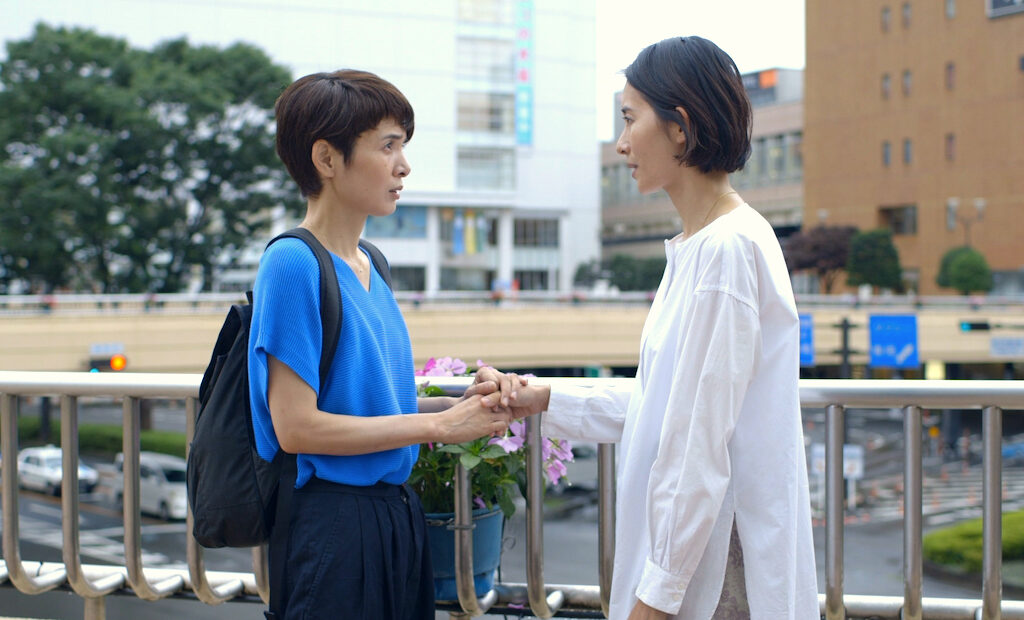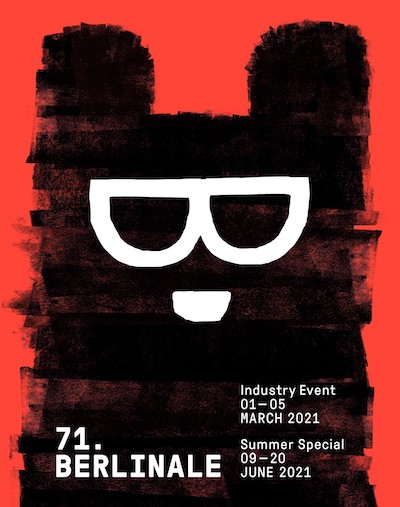Wheel of Fortune and Fantasy (Guzen to sozo)

Silver Bear Grand Jury Prize winner
Three lovelorn episodes about “coincidence and imagination”, as described by writer-director Ryûsuke Hamaguchi, comprise this wondrous, searching and loquacious film. Hamaguchi has spoken of his debt to Éric Rohmer, and, akin to that filmmaker’s work, there’s plenty of prose and dialogue to absorb across these thematically twined tales, elegantly rendered by artful camera placements and sly, disorienting shot selection. One moment, characters may be deep in conversation but held at middle distance; the next, they’re subjects of alternating portraits, the audience suddenly afforded stunning direct perspective.
So, the limitless stream of words is one crucial aspect, but there’s always an object worth looking at as well: an upright balloon; an open door; a lingering hand clasping onto another. They function as time bombs, seemingly defused, mere decorations for image-making. But the viewer knows better: vessels burst, hinges pivot, and people are minded to let go. In the first segment, two young women discuss promising traits of a damaged romantic partner; in the second, a pair of semi-involved students plot revenge on an enigmatic, award-winning professor of literature; in the third, an unemployed IT engineer and a domestic housewife appear to reconnect after failing to meet at a school reunion.
Each account has its series of cunning twists, which bring into relief notions of choice and chance: how occasions in life are defined by these agents, how differently they are perceived in reality, and how hard they are to understand in their repeating. Hamaguchi is alert to storytelling conventions, and likes to upend them, although his direction is rarely burdened with clod-footed meta-cinematic awareness. Rather, his guidance of actors lightly accentuates dramatic incidents and performances. The ostensible everyday is freighted with deeper meaning: the abrupt zoom that recalibrates a café catch-up; the passing students whose hubbub infiltrates a compromising monologue; the several recreations of a brief encounter on a public escalator.
DP Yukiko Iioka captures the surrounds of developing constructions in the Japanese provincial city, giving exhalation from the breathless interiors, otherwise suffused with the persistent volleys of verbal table tennis. Hamaguchi’s screenplay wades into the underlying sexual, social and cultural politics of the urban classes, and, while this film hardly amounts to a profound display of statement-making, each romance treads a careful line of truth and deception, pursuing shifting moral ground and wry self-exegesis. It’s probably fair to say that the calculated time leaps and high concept expositions are more provocative than the vague satirical poking.
In the episode Once Again, slight fantastical elements – all online communication has stopped – are secondary contrivances to the essential beauty of the central relationship. Problems of love and loss are manageable in the minutiae, this section suggests, but the effect of thwarted desire is debilitative and fundamental. Caught in that thought, the audience is reminded of the force and folly of such sentiments: the housewife, who may or may not have just discovered her eternal soulmate, cries in immediate delight at their clowning on the escalator: “It’s like a skit!”
Joseph Owen
Wheel of Fortune and Fantasy (Guzen to sozo) does not have a UK release date yet.
Read more reviews from our Berlin Film Festival 2021 coverage here.
For further information about the event visit the Berlin Film Festival website here.
Watch the trailer for Wheel of Fortune and Fantasy (Guzen to sozo) here:


























Facebook
Twitter
Instagram
YouTube
RSS